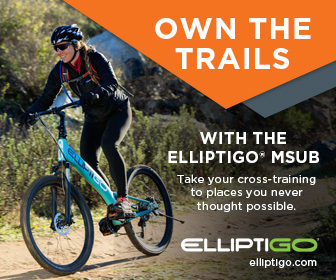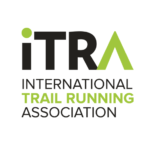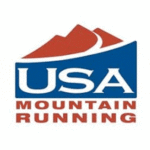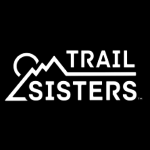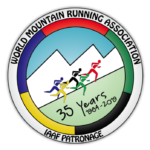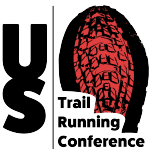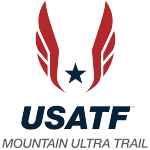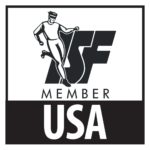
Thursday, October 22, marked the second day of the 8th annual US Trail Running Conference in Fayetteville, Arkansas, with a series of presentations, panel discussions and exhibitors for trail race directors. Several well-known presenters made virtual appearances including elite mountain trail runner Kilian Jornet and Western States 100 Mile Endurance Run event director Craig Thornley. These highlights followed a successful Wednesday conference kick-off summarized here on trailrunner.com.
Day two of the conference began before sunrise with director Terry Chiplin leading a “touch the earth” ceremony at Mt. Sequoyah Woods Trail, prior to a low-key four mile group trail run. Mt. Sequoyah is a favorite among local trail runners featuring mostly single track covered with newly fallen leaves.
The day’s presentations covered topics from sustainable races and zero waste, to course creation and marking. The first presentation to race directors came from internationally renowned trail runner, Kilian Jornet, who live streamed from his home in Norway to introduce the Outdoor Friendly Pledge. This presentation marked the official US launch of Jornet’s program created by The Kilian Jornet Foundation and includes a pledge of 10 commitments for events, athletes, brands and federations in trail running.

[PRO TIP: Are you ready to take the pledge? Read the commitments and take the pledge at outdoorfriendly.org]
“The sports model we’ve been accustomed to as trail runners for the last ten years needs to change,” said Jornet. “We need to come up with another model that does a better job of focusing on creating sustainable events and protecting wildlife. We as trail runners can be a leading example for other sports when it comes to sustainability.” Jornet will rejoin the conference on Saturday to share his Outdoor Friendly Pledge with trail runners. It’s not too late to join Jornet for Saturday’s virtual “Trail Runner Day” at the conference by registering on Race Roster for just $10.
Thursday’s first panel discussion was entitled “Sustainability Initiatives – Greening Your Race and Striving for Zero Waste,” and featured panelists Heather Ellzey (environmental educator for the City of Fayetteville), Zoe Rom (assistant editor at Trail Runner Magazine) and Ragnar Trail founder Steven Aderholt.
Adherholt talked about the Council for Responsible Sport and Athletes for a Fit Planet, two organizations helping race directors put on more environmentally friendly events. In addition to these organizations, Ellzey advised race directors to, “Reach out to local governments. Local sustainability teams and environmental educators can be additional free resources for race directors.”
The panel discussion also covered how trail running events can reduce waste and the importance of creating a procurement policy to support an events’ sustainability commitment. “Give out items that are useful and reusable,” said Ellzey, “things like bamboo utensils or stainless steel cups runners can use for water or other drinks after the event are great options.”
A suggestion was made to provide T-shirts and medals as optional with a race entry, further reducing items that may end up in the landfill. In addition, providing real food with less packaging is a good solution for fuel at aid stations. Many events and specialty run retailers are recycling waste such as gel and energy bar wrappers through programs like Terracycle.
Rom had a simple mantra for race directors to consider, “Use the three Rs – reduce, reuse, recycle – Full Stop.”
Next up was a virtual presentation from Bruce Rayner of Athletes for a Fit Planet. Rayner focused on what sustainability means as we turn the corner into 2021, and why it’s more important than ever to focus on reducing three environmental footprints – waste, water, and CO2. Rayner gave a brief introduction to his organization which launched in 2008, and has partnered with both large and small running events and organizations over the years including USA Triathlon, Rock ‘n Roll Seattle, Boston Athletics Association and the Ragnar Trail Series to help them reduce waste. These organizations have taken the Athletes for a Fit Planet Pledge of Sustainability that race directors can use to learn and implement sustainability practices at their events.
A major focus of the presentation was on how races can reduce their indirect carbon footprint. “The majority of CO2 produced by many large trail running events comes from the travel involved to get to these events,” explained Rayner. “Airplane and vehicle-related travel are the two biggest contributors.”
Rayner gave several tips to reduce the carbon footprint generated by race travel. “The first step is figuring out how to measure your carbon footprint, then reduce it. Ride sharing, public transport, or bicycling are great ways to reduce your carbon footprint related to travel to and from races. What you can’t reduce, you can then offset by purchasing carbon offsets.”

Rayner announced that the new pledge for 2021 will include “social sustainability” in addition to reducing the environmental impacts of large events. As an example, Rayner shared the social justice struggles of professional trail runner and Black American, Joe Gray, who told Runner’s World magazine in a recent article, “Trail Running is all about freedom, yet, more often than not, especially at U.S. mountain and trail championships, I am the only black runner and one of only a few minority runners on the starting line. All of this suggests there are barriers or a lack of encouragement to get involved in a sport in which all you need are a pair of running shoes and an adventurous mindset to get started.”
“These are issues trail race directors can and should work on” said Rayner, who provided five ways events can become more inclusive of under represented groups in our sport:
- Find out the racial makeup of your local community and work toward reflecting that diversity in your event.
- Engage with members of the Black community and communities of color.
- Engage with the LGBTQ community.
- Reach out to high school coaches.
- Expand the binary gender question (Male or Female) on your registration form.
Before lunch was a presentation on marketing and advertising by Phillip Shepard, owner of the digital agency Marketing Hero. “I really do believe small businesses can change the world,” said Shepard. “As race directors, your businesses can be a force for good in the community and make positive changes in the world.”
Shepard gave tips on how race directors can use marketing techniques to grow their races and make them more unique. His top ways to grow small businesses with little effort included developing an easy-to-work website and utilizing tools from popular social media platforms. “With these tools, you can target people near, far, in wealthy/economically poor areas, men, women, young, old or whatever audience you want to bring to your races. A goal is to turn a cold audience to a warm audience.”
To finish his presentation, Shepard shared his top marketing resources for trail race directors:
- Email: Mailerlite
- Texting: Manychat
- Website: Squarespace
- Social posting: Facebook Creator Studio
- Instagram Story Posting: Later
- Design: Canva

Following the lunch break, the program resumed with “Race Courses – safety, limits, marking, clean up, permits, land partners and new initiatives.” Panelists included Greg Lanctot (Pacific Coast Trail Runs), Paul Gigliotti (Pirate Perry Events), and Hayley Pollack (Aravaipa Running). The speakers covered many topics, including an engaging discussion about making sure participants know what they’re getting themselves into when they sign up for trail races.
“Lack of description and information about your event can be a problem,” said Pollack, “Let your runners know what they’re getting themselves into. Provide information on weather, elevation gain, terrain type, course marking, and exposure.”
Another topic was about how to select a race location. Both Gigliotti and Lanctot brought up the importance of event parking when choosing your event location. “Parking is what I start with,” said Gigliotti, “You give everyone a bad taste for your race if you make them park far away or if there’s limited parking.”
Lanctot also spoke about attracting specific race audiences, “We give discounts to clubs and we have an outreach program dedicated to youth. We also have an event that we created specifically for the visually impaired.”
The panelists also shared their favorite platforms for choosing trail running courses which included Caltopo, Relive, Strava and RunGo.
Following the panel were in-person and virtual presentations by conference exhibitors including Activate Canopy, Orbiter, BOA Fit Systems, Stride Awards, Gold Standard Stewardship, RunGo, Wander Project, First Place Pins, Gig Graphics and Marathon Printing.

Next up was a discussion about how race directors have responded to the COVID-19 pandemic. Speakers included Craig Thornley (Western States 100 Mile Endurance Run), Amy Rusiecki (Vermont 100 Mile Endurance Run), Susan Kendrick, (American Birkebeiner Ski Foundation), and Greg Lanctot (Pacific Coast Trail Runs). “Twenty percent of our racers come from overseas,” said Thornley. “As long as travel restrictions are still an issue, we will have difficulty putting on the race. There’s a lot still up in the air.”
Rusiecki followed on this point, “Similar to Greg and Western States, we’re trying to figure out what things will look like next year at our event. The question is if there will be ways to put on a safe race and stay within the COVID-19 guidelines.”
Thornley also shared his race’s commitment to follow the ITRA COVID-19 Race Organizers Standard Operating Guidelines, which many races across the world are also following.
Kendrick added to the discussion, “I’ve been asked why we still put on our (September) trail race during the pandemic when so many races were cancelled? It’s what we do. We have 20 employees and they have livelihoods. We had to figure out a way to keep going, but to find ways to make sure it’s safe and figure out what our race is going to look like in this COVID-19 era.”

Lanctot gave a clear warning to race directors about their new COVID-19 era responsibilities to runner’s safety. “Runner accountability is getting raised to a whole new level,” said Lanctot. “Race directors need to be smarter than ever. There’s so much more to do and prepare for. Signing waivers, educating volunteers and race organizers on COVID-19 protocols, and focusing on risk management thinking is essential. There will be people out there looking for the mistakes you’re making as an event and you need to be as prepared as possible to minimize these mistakes.”
Lanctot shared the Guidelines for Trail Running Events in the COVID-19 Era created by the Race Director Alliance – a group of 8 U.S. race directors from 8 states.
Thursday’s final race director panel was “Sponsor Partnerships and Financial Implications” with Susan Kendrick and Spartan Trail’s Travis Ketcham. How smaller trail running events can attract sponsorship was one key topic. “If you’re a smaller race,” said Kendrick, “attracting local sponsors can help you gain legitimacy in the community. Having success obtaining sponsorship from smaller local companies will allow you to then reach out to other sponsors and grow your brand.”

The panel also discussed the challenge some inexperienced race directors have in just approaching potential sponsors. “You can’t think of it as a sales pitch,” said Ketcham, “it’s about creating relationships. You need someone within that organization that can be your champion and help you get what you need from the sponsor.”
Kendrick added, “Build relationships that are overflowing with trust. If you have good relationships with your sponsors you will get through challenges such as this current pandemic.” Kendrick went on to explain one common pitfall of building trusting sponsorship relationships: approaching the sponsor with a sense of need.
Said Kendrick, “Instead of thinking of the sponsor relationship as you asking them for something, think of your value. You are bringing value to the relationship. Finding a good sponsor relationship is about looking for the right match between your values and that of the sponsor.”
The final presentation was from from US Trail Running Conference presenting sponsor Race Roster. Since its founding in 2012, Race Roster has provided an online registration platform for event directors. They now partner with over 4,000 events across the world. Their platform offers several unique features for event directors, such as fundraising campaigns, custom bibs, and event playlists. Additionally, Race Roster was recently acquired by shoe manufacturer ASICS and now utilizes the ASICS Run Keeper app.
Day two of the 2020 US Trail Running Conference concluded with an outdoor socially distanced networking session, including snacks and drinks from Fayetteville’s Fossil Cove Brewing Company.

See even more photos from the 2020 US Trail Running Conference by Peter Maksimow on Google Photos.


